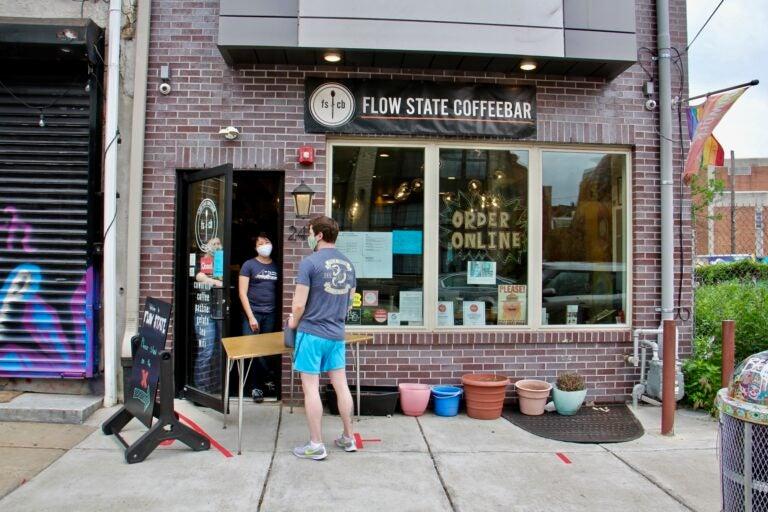Philadelphia Small Businesses Navigate Tariff Pressures Ahead of Holiday Season
Escalating Tariffs and Their Financial Impact on Philadelphia’s Local Retailers
As the holiday shopping rush nears, Philadelphia’s small business community is grappling with the financial strain caused by increased tariffs on imported products. These added costs are driving up prices for essential inventory and raw materials, compelling many shop owners to make tough choices—either transferring these expenses to customers or scaling back on stock orders. This delicate balancing act between competitive pricing and maintaining profit margins has left numerous retailers concerned about their long-term viability in an increasingly volatile market.
Philadelphia retailers report several critical challenges, including:
- Significant price hikes in wholesale electronics, apparel, and home essentials
- Supply chain disruptions leading to inventory shortages and delayed deliveries
- Pressure on profit margins resulting in reduced staff hours or workforce downsizing
- Uncertainty complicating holiday marketing plans and stock management
| Product Category | Tariff-Driven Cost Increase | Retailer Adjustments |
|---|---|---|
| Consumer Electronics | Approximately 15% rise | Increased retail prices; reduced offerings of low-margin items |
| Apparel and Textiles | Near 10% increase | Transitioning to domestic suppliers where feasible |
| Home Essentials | About 12% hike | Scaling back holiday discounts; focusing on core products |
How Rising Prices Are Shaping Philadelphia Consumers’ Holiday Shopping Habits
With tariffs pushing prices upward, Philadelphia shoppers are modifying their purchasing behaviors this holiday season. Many are prioritizing essential items and hunting for substantial bargains rather than indulging in premium or luxury goods. This trend reflects a broader consumer effort to stretch budgets amid inflationary pressures affecting categories such as electronics, apparel, and household products.
Notable shifts in consumer behavior include:
- Choosing to support neighborhood small businesses to foster community resilience and avoid markups typical of large retailers
- Increasing use of online tools to compare prices and identify the best deals before purchasing
- Delaying or reducing discretionary spending until more attractive promotions become available
| Product Category | Average Price Increase (%) | Consumer Reaction |
|---|---|---|
| Electronics | 12% | Postponement of upgrades and new purchases |
| Apparel | 8% | Shift toward discount outlets and clearance sales |
| Household Items | 10% | Preference for smaller, practical gifts |
Adaptive Measures Philadelphia Retailers Employ to Counteract Tariff-Induced Financial Pressures
To mitigate the financial burden imposed by tariffs, Philadelphia’s small businesses are adopting a range of strategic responses. A common approach involves expanding supplier networks to include both domestic manufacturers and alternative international sources, thereby reducing reliance on any single market and stabilizing procurement costs. Additionally, many retailers are fine-tuning inventory management by prioritizing high-demand products and limiting orders of tariff-affected goods, which helps preserve cash flow and reduce excess stock.
Marketing strategies have also evolved, with a stronger emphasis on communicating product value and quality rather than competing solely on price. Furthermore, some businesses have embraced dynamic pricing models that allow for flexible adjustments in response to fluctuating import costs and supplier pricing, helping to safeguard profit margins in an unpredictable environment.
| Strategy | Primary Advantage |
|---|---|
| Supplier Diversification | Minimizes exposure to cost volatility and supply disruptions |
| Inventory Streamlining | Enhances cash flow and reduces overstock risks |
| Value-Focused Marketing | Builds stronger customer relationships despite price increases |
| Flexible Pricing Strategies | Maintains profitability amid market fluctuations |
Expert Guidance for Philadelphia Small Businesses Preparing for Holiday Demand
Industry specialists recommend that Philadelphia’s small retailers adopt a multi-faceted approach to navigate the holiday season successfully. Central to this is the diversification of supply chains, which helps buffer against sudden tariff hikes and supply interruptions. Utilizing advanced forecasting tools can also provide valuable insights into consumer demand trends, enabling more precise inventory planning and reducing the risks of stock imbalances.
Enhancing the customer experience remains vital, especially as online shopping continues to gain traction. Retailers are encouraged to invest in digital platforms that facilitate smooth communication and transactions. Additionally, implementing flexible pricing tactics such as limited-time discounts or bundled offers can attract budget-conscious shoppers without compromising brand value.
- Broaden supplier networks to mitigate supply chain risks
- Leverage predictive analytics for accurate demand forecasting
- Strengthen online sales channels to reach a wider audience
- Adopt dynamic pricing to stay competitive
- Prioritize exceptional customer service to foster loyalty
| Approach | Benefit | Illustrative Example |
|---|---|---|
| Supplier Diversification | Reduces vulnerability to supply chain shocks | Collaborate with both local artisans and overseas manufacturers |
| Demand Forecasting | Optimizes stock levels and reduces waste | Implement AI-driven inventory management software |
| Online Sales Enhancement | Expands customer reach beyond physical storefronts | Launch integrated e-commerce platforms with mobile compatibility |
| Dynamic Pricing | Boosts sales conversions during peak periods | Run flash sales and bundle promotions strategically |
Conclusion: Navigating Challenges to Sustain Philadelphia’s Small Business Ecosystem
As Philadelphia’s small businesses prepare for the critical holiday shopping window, the dual pressures of tariffs and rising costs present formidable obstacles. Retailers must carefully balance price adjustments with customer retention strategies to remain viable. The coming weeks will be pivotal in determining how effectively these businesses can adapt to economic headwinds, with implications not only for their survival but also for the broader local economy. Community leaders and industry experts continue to advocate for supportive measures that bolster this essential sector during such a pivotal time.






